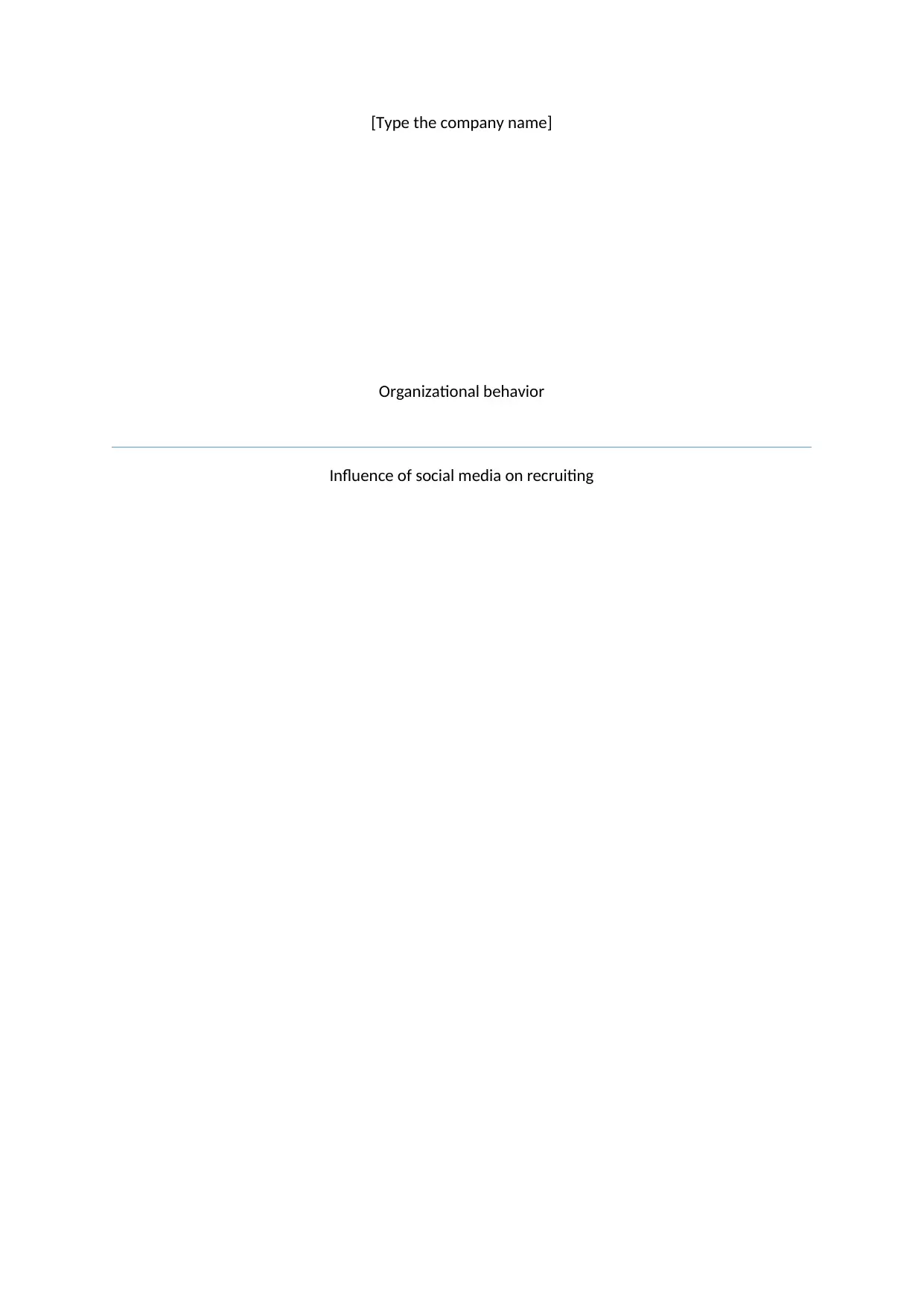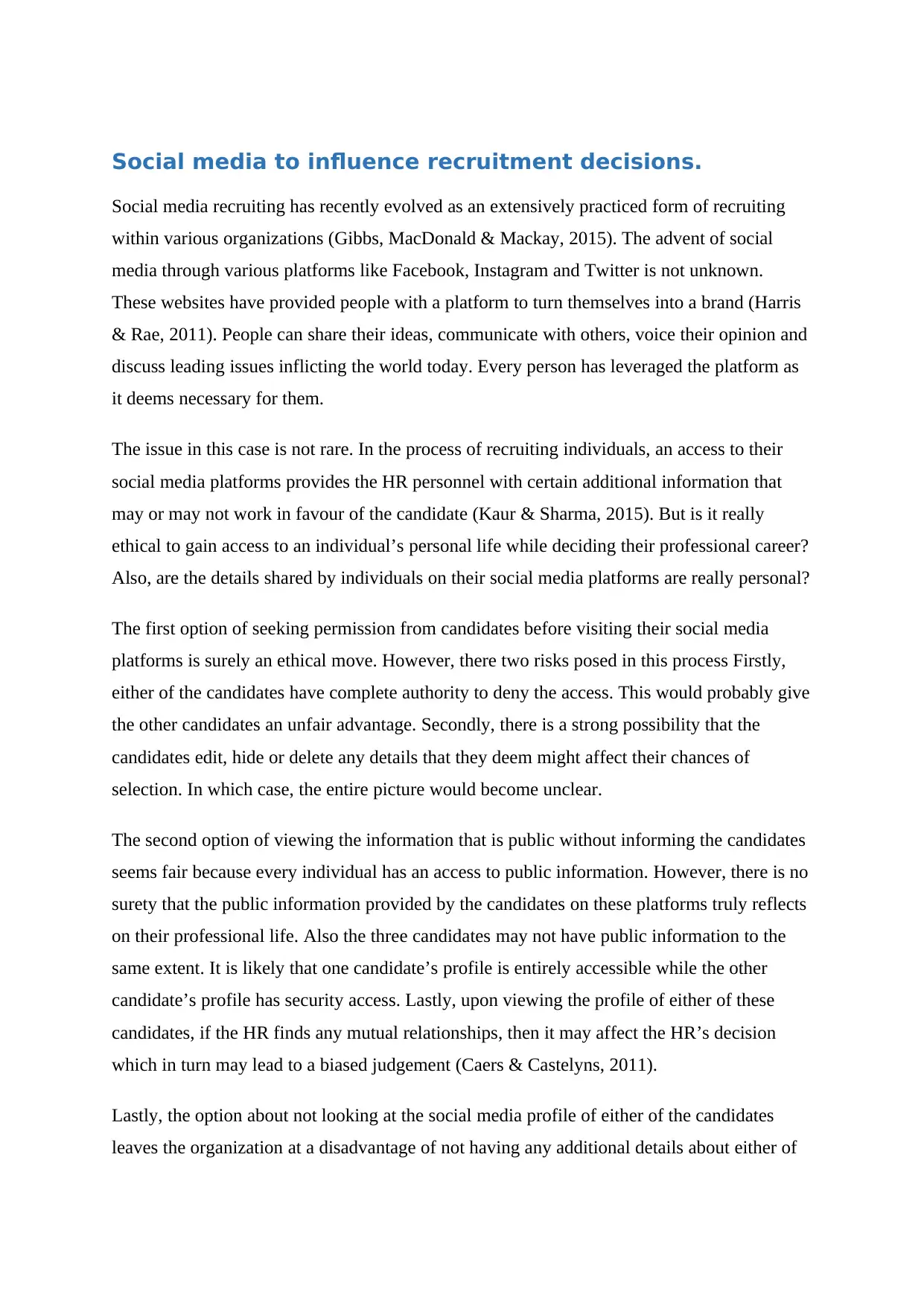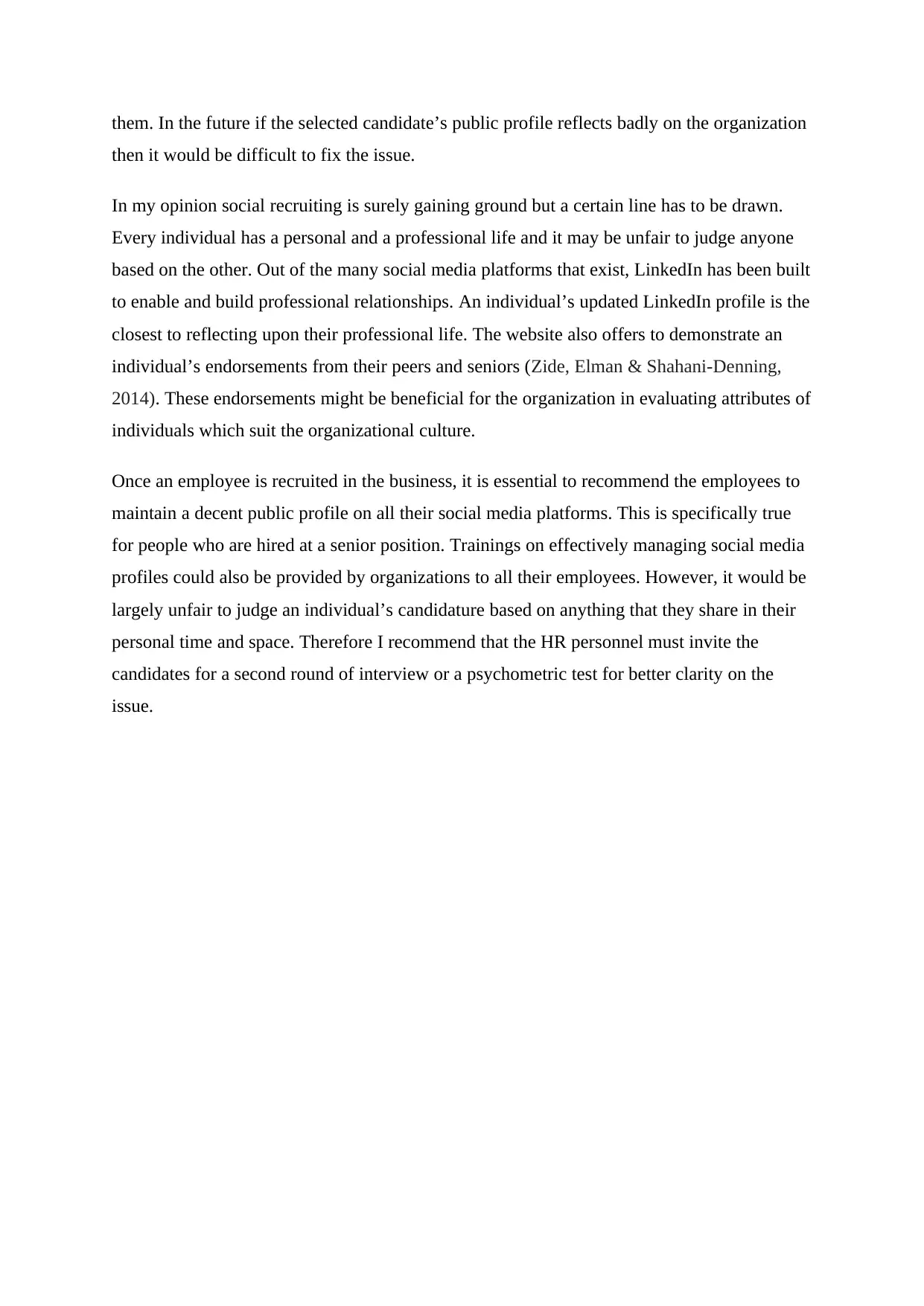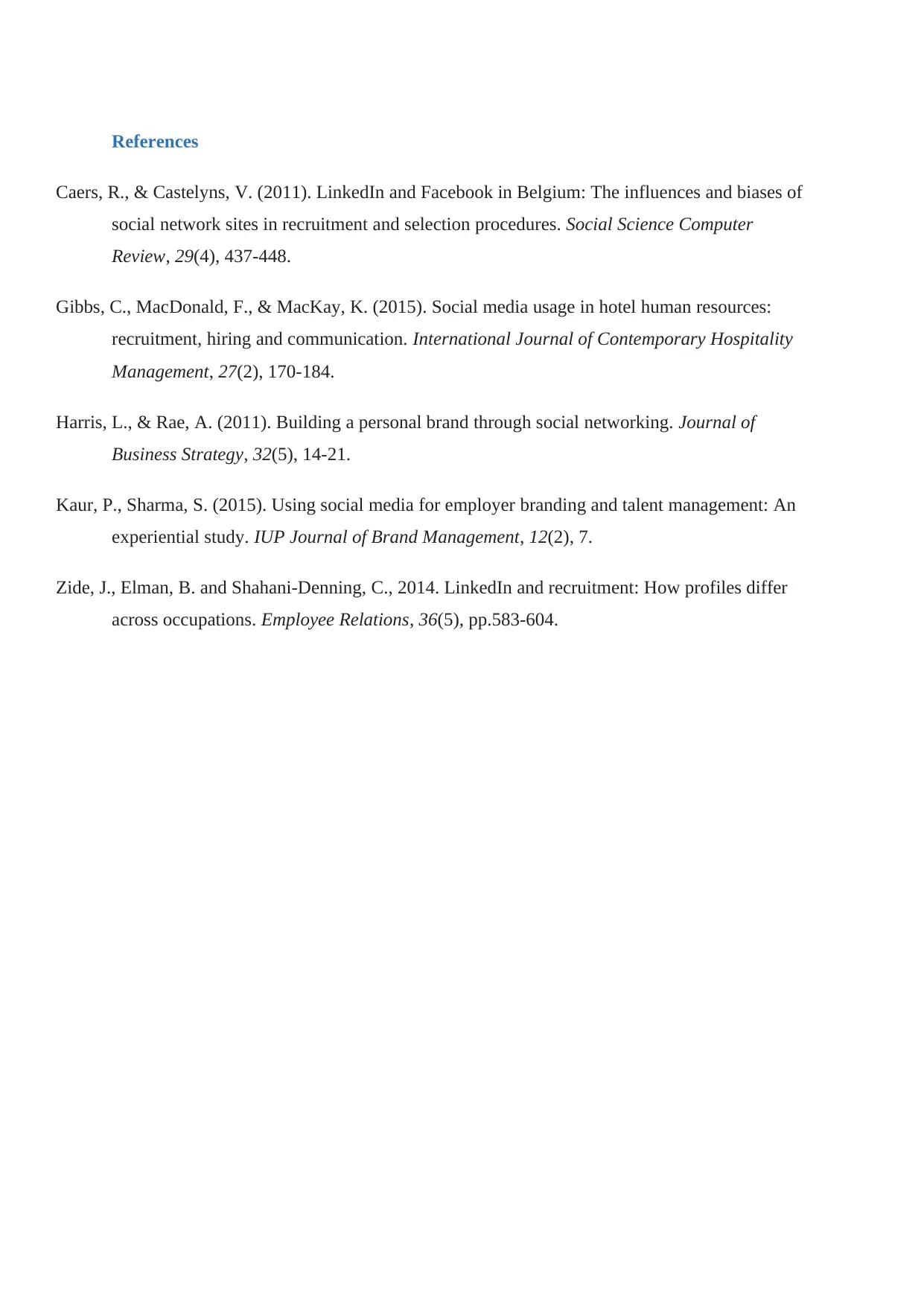The Influence of Social Media on Recruitment Decisions: An Analysis
VerifiedAdded on 2023/06/14
|4
|928
|76
Essay
AI Summary
This essay delves into the evolving role of social media in organizational recruitment practices, highlighting the ethical dilemmas faced by HR professionals. It explores the advantages and disadvantages of using platforms like Facebook, Instagram, and LinkedIn to gather candidate information, questioning the fairness and privacy implications. The essay considers options such as seeking candidate permission, viewing public information, and abstaining from social media checks, weighing the potential biases and risks associated with each approach. Ultimately, it advocates for a balanced strategy that leverages professional networking sites like LinkedIn for relevant insights while respecting individual privacy and avoiding judgments based on personal social media content. The essay recommends additional interview rounds or psychometric tests to ensure fair and comprehensive candidate evaluations, emphasizing the importance of maintaining ethical standards in the digital age of recruitment. Desklib provides access to similar essays and resources for students.
1 out of 4











![[object Object]](/_next/static/media/star-bottom.7253800d.svg)